Panna Wildlife Sanctuary is located in the central Indian state of Madhya Pradesh and is a part of the larger Panna Tiger Reserve. This sanctuary is spread over an area of 543 square kilometres, and is renowned for its stunning landscapes, consisting of teak forests, river valleys, and rocky terrains. Panna is home to diverse wildlife, including tigers, leopards, sloth bears, and over 200 species of birds. The Ken River flows through the sanctuary, adding to its picturesque beauty and making it a haven for nature enthusiasts.
Location
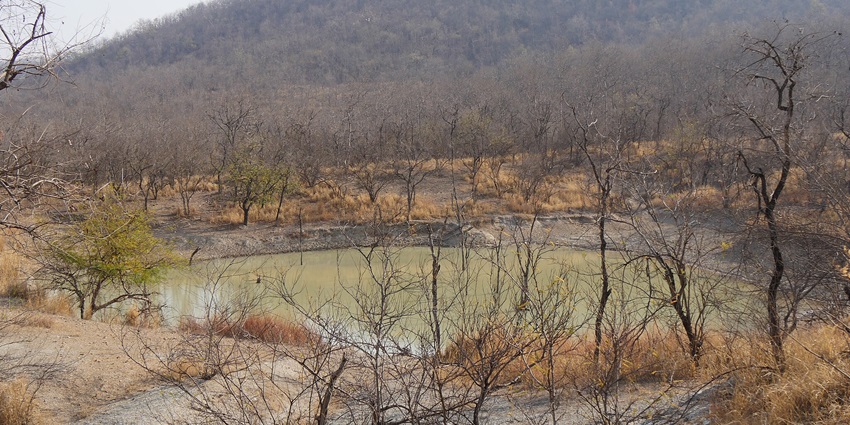
Photo: tjabeljan / Wikimedia Commons
Panna Wildlife Sanctuary is situated in the Panna and Chhatarpur districts of Madhya Pradesh, about 40 kilometres from Khajuraho, a UNESCO World Heritage Site. The sanctuary is easily accessible from major towns and cities in the region.
Suggested Read: Explore The Best Places To Visit Near Madhya Pradesh
How To Reach Panna Wildlife Sanctuary
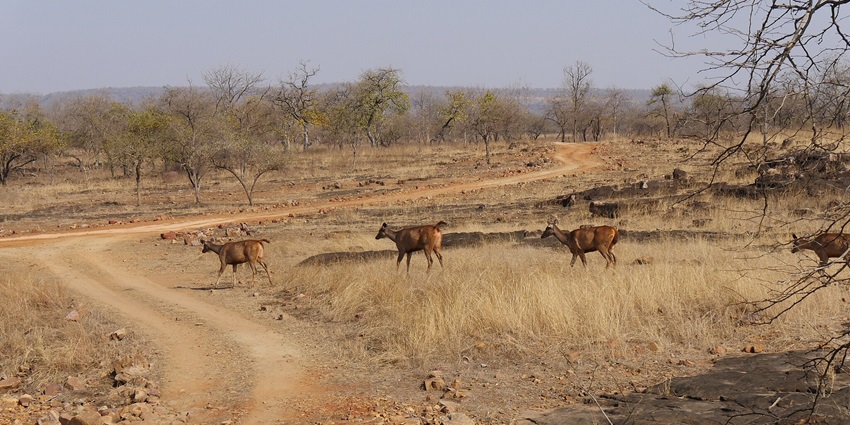
Photo: tjabeljan / Wikimedia Commons
By Air: The nearest airport is Khajuraho Airport, located approximately 40 kilometres from the sanctuary. From here, tourists can hire cabs or travel by bus to reach Panna Wildlife Sanctuary.
By Rail: The closest railway station is the Khajuraho Railway Station. From the station, visitors can hire taxis or take local buses to reach the sanctuary.
By Road: Panna Wildlife Sanctuary is well-connected by road, with Khajuraho (40 km), Satna (70 km), and Bhopal (375 km) offering easy access. Tourists can easily travel by road or hire taxis for the same.
Places To Visit Near Panna Wildlife Sanctuary
Here’s a list of places to visit nearby whilst exploring the Panna Wildlife Sanctuary:
1. Khajuraho Temples
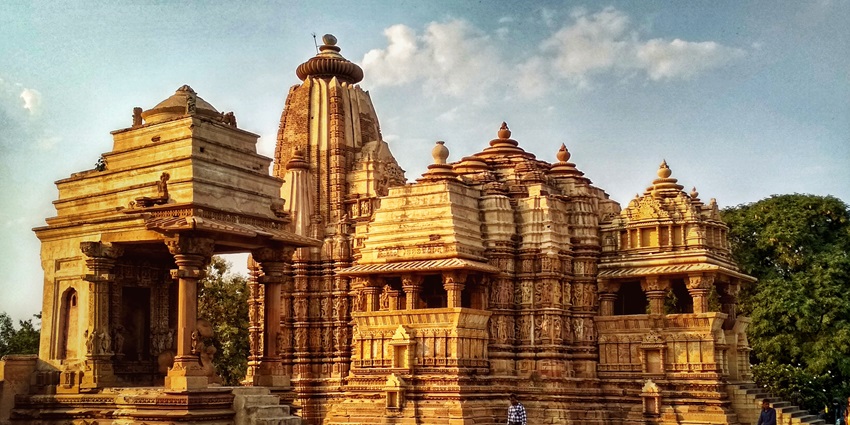
Photo: Adzac5848 / Wikimedia Commons
The Khajuraho Temples are a UNESCO World Heritage Site located just 40 kilometres from Panna, known for their intricate and sensuous sculptures. Built between the 9th and 12th centuries by the Chandela dynasty, these temples are a testament to ancient Indian architecture. The temples are divided into three groups: Western, Eastern, and Southern, with the Kandariya Mahadeva Temple being the largest and most renowned.
Timings: 6 AM – 6 PM
Entry Fee: ₹40 for Indian nationals; ₹600 for foreign nationals
Suggested Read: Wildlife Sanctuaries In Madhya Pradesh
2. Ken Gharial Sanctuary
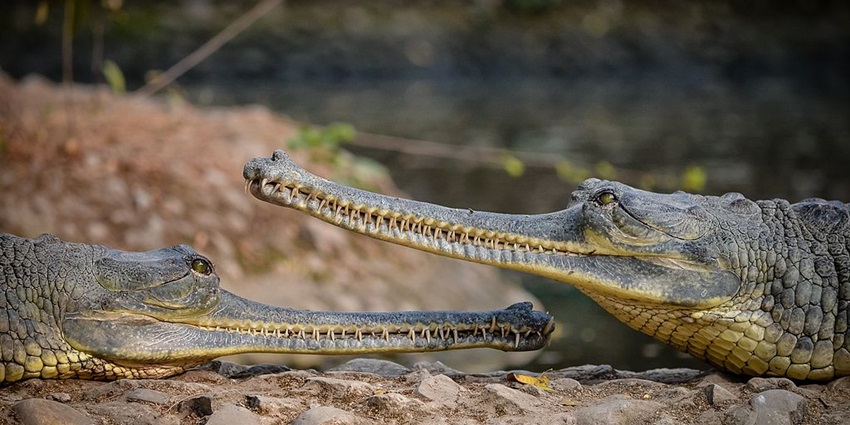
Photo: Amit Chorge / Wikimedia Commons / Image For Representation Only
The Ken Gharial Sanctuary is about 20 kilometres from Panna and is situated near the confluence of the Ken and Khudar rivers. This sanctuary is dedicated to the conservation of the Gharial, an endangered species of crocodile. Visitors can take a boat ride on the river to witness these magnificent reptiles basking along the riverbanks. Apart from Gharials, the sanctuary is home to various bird species, making it an excellent spot for birdwatching.
Timings: 7 AM – 5 PM
Entry Fee: ₹50 per person
3. Raneh Falls
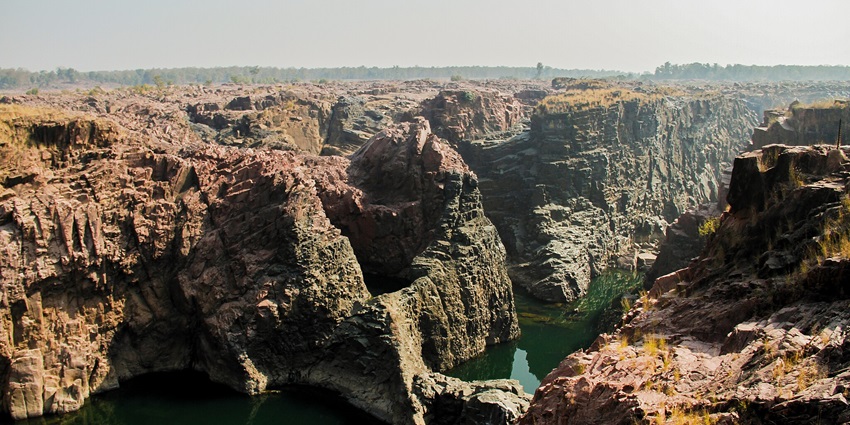
Photo: Bhups77 / Wikimedia Commons
Raneh Falls is a natural waterfall formed by the Ken River. The falls are surrounded by a stunning five-kilometre-long canyon made of crystalline granite with hues of pink, grey, and green and are located just 22 kilometres from Panna. The breathtaking landscape and cascading water make it a popular destination for nature lovers. The geological formations of Raneh Falls are unique and provide a memorable experience for travellers.
Timings: 7 AM – 5:00 PM
Entry Fee: ₹50 per person
Suggested Read: National Parks Near Indore
4. Pandav Falls
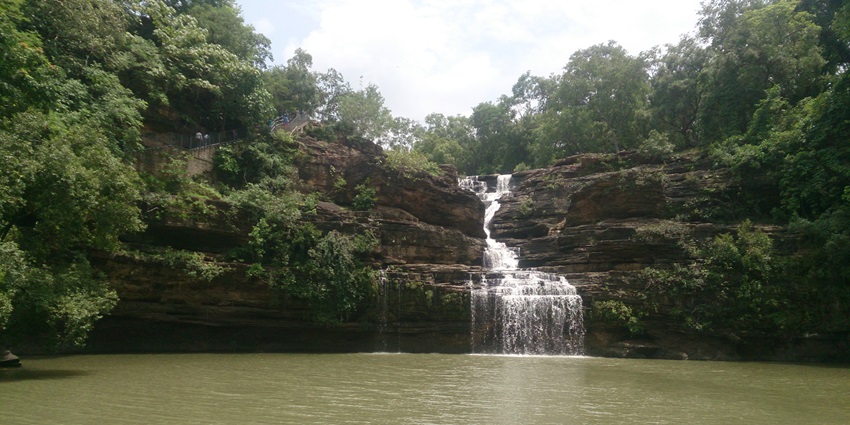
Photo: Sushil Panthri / Wikimedia Commons
Pandav Falls is a beautiful waterfall cascading into a natural pool surrounded by lush greenery. The name of the falls is derived from the Pandavas of the Mahabharata, who are believed to have spent time here during their exile. The serene atmosphere, along with the scenic beauty of the falls, makes it an ideal spot for picnics and nature walks. The surrounding caves and forested area add to the mystical charm of this location.
Timings: 8 AM – 6 PM
Entry Fee: ₹50 per person
5. Ajaygarh Fort
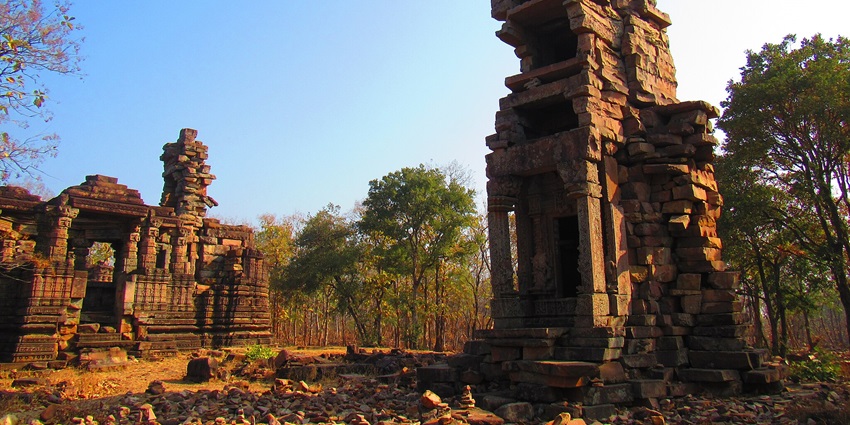
Photo: Aminesh.aryan / Wikimedia Commons
Ajaygarh Fort is an ancient fort situated on a hilltop and is located about 35 kilometres from Panna. The fort, built by the Chandelas, offers a glimpse into the region’s royal history, and provides panoramic views of the surrounding landscape. Visitors need to hike up to the fort, passing through thick forests and rocky terrain. The fort’s historical significance, combined with the serene surroundings, makes it a must-visit for history buffs.
Timings: 6 AM – 6 PM
Entry Fee: None
Suggested Read: Uncover The Best National Park Near Jabalpur For An Unforgettable Wildlife Experience
Where To Stay

Photo: Pixabay / Pexels / Image For Representation Only
Visitors to Panna Wildlife Sanctuary have a variety of accommodation options, from eco-friendly lodges to luxurious resorts. Ken River Lodge offers a comfortable stay with scenic views of the river, while Pashan Garh by Taj provides a luxury jungle experience with private cottages. For budget travellers, guesthouses and government-run MPTDC accommodations are available in Panna and Khajuraho.
Where To Eat
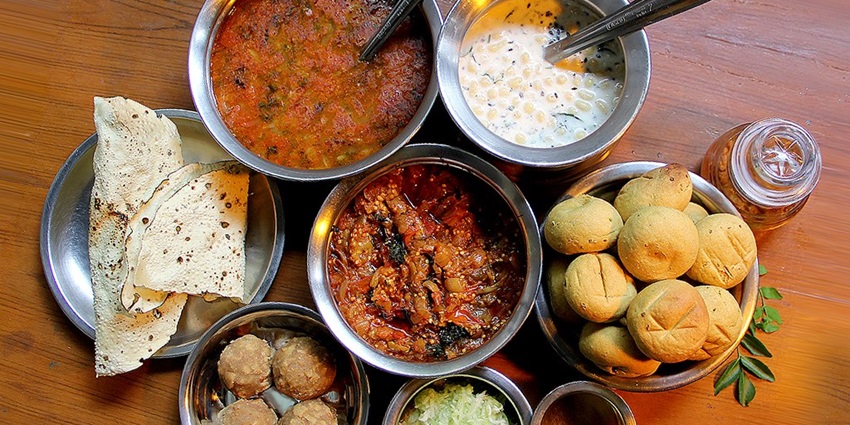
Photo: Niranjan.gohane / Wikimedia Commons
Dining options near Panna Wildlife Sanctuary range from traditional local eateries to fine dining experiences. In Khajuraho, restaurants like Raja Café and La Bella Italia offer a mix of Indian and international cuisines. For a more traditional experience, try the local delicacies at Indiana Restaurant or the street food stalls near the temple complex. Visitors staying at resorts like Ken River Lodge can enjoy freshly prepared organic meals with a view of the river.
Suggested Read: Shiva Temples In Madhya Pradesh
Best Time To Visit
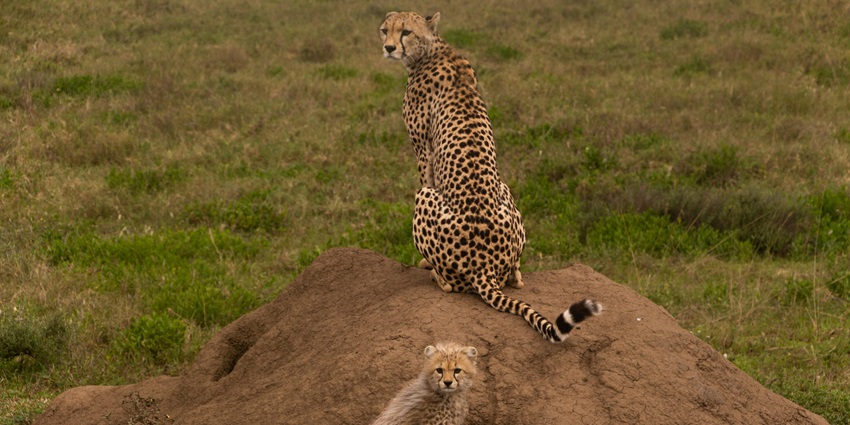
Photo: Joe-Francis Kiaga / Pexels / Image For Representation Only
The best time to visit Panna Wildlife Sanctuary is between November and March when the weather is cool and ideal for wildlife safaris. During this period, animals are more active, and the chances of spotting tigers and other wildlife increase. The summer months (April to June) can be hot, but early-morning safaris can still offer good sightings.
Other Factors To Consider
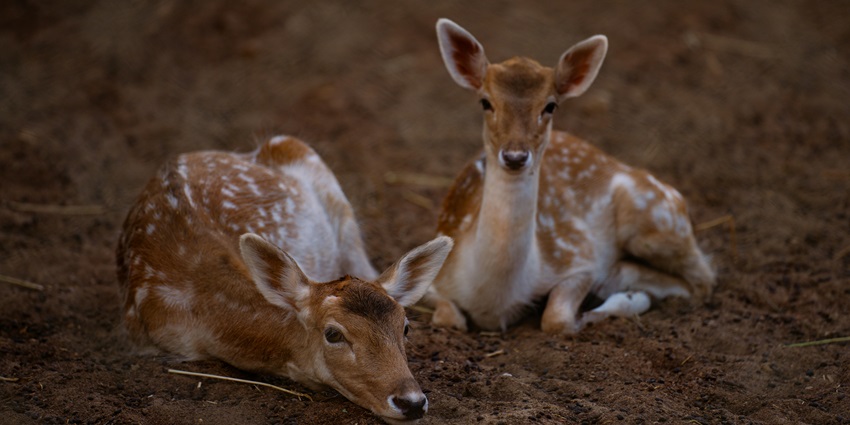
Photo: Tahamie Farooqui / Pexels / Image For Representation Only
Average Cost Of The Trip:
A trip to Panna Wildlife Sanctuary typically costs between ₹12,000 and ₹25,000 per person. This budget includes accommodation, transport, meals, and entry fees. The Panna Wildlife Sanctuary ticket price is ₹ 250 per person and ₹1500 for foreign nationals. For budget-conscious travellers, government guesthouses and local transport can help reduce costs. Mid-range and luxury travellers may opt for jungle lodges and private safaris, offering a more comfortable and immersive experience.
Tips For Travellers:
- Carry binoculars and cameras to capture the beauty of the sanctuary. Don’t forget to click stunning Panna Wildlife Sanctuary photos.
- Check the Panna Wildlife Sanctuary timings before planning your safari.
- Wear comfortable clothes and sturdy shoes to explore the sanctuary.
- Respect wildlife and avoid littering in the sanctuary.
- Pack essentials like sunscreen, a hat, and a water bottle, especially during summer visits.
- Contact local authorities or the sanctuary’s authorities for updated information about safaris and bookings.
Suggested Read: Party Places In Bhopal To Make Your Next Celebration Extra Special
Panna Wildlife Sanctuary offers a unique blend of wildlife, history, and natural beauty, making it a must-visit destination for nature enthusiasts and adventure seekers. Panna has something for everyone, from thrilling tiger safaris to serene waterfalls and ancient temples. Ready to explore this hidden gem in Madhya Pradesh? Book your Panna Wildlife Sanctuary tour with TripXL today and enjoy a well-curated experience in one of India’s most captivating sanctuaries.
Cover Photo: Manish Dhapwal / Pexels / Image For Representation Only


 WhatsApp
WhatsApp
 Twitter
Twitter









